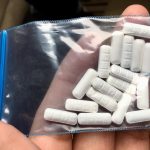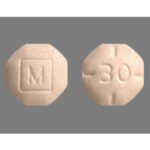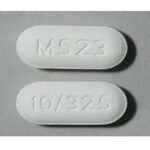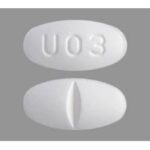What Type of Pill Is n 358 10 White Pill?
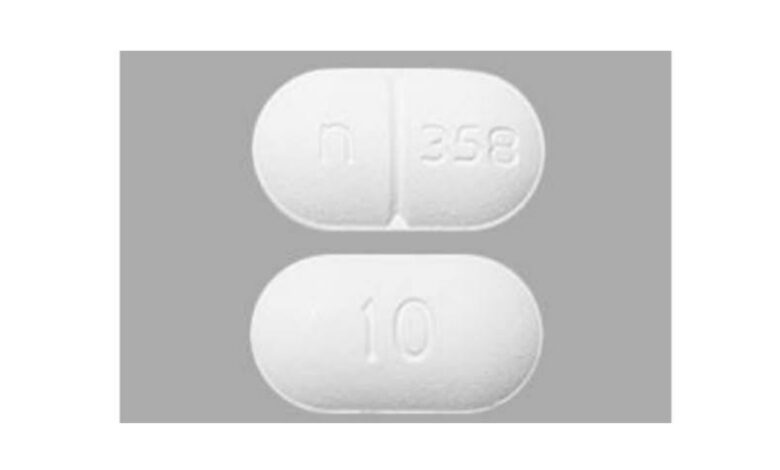
The white capsule shaped pill with the imprint n 358 10 has been identified as a brand of Acetaminophen and Hydrocodone Bitartrate 325 mg / 10 mg supplied by Novel Laboratories, Inc.. Acetaminophen/hydrocodone is used in the treatment of back pain; pain; cough and belongs to the drug class narcotic analgesic combinations.
Hydrocodone and acetaminophen combination is used to relieve pain severe enough to require opioid treatment and when other pain medicines did not work well enough or cannot be tolerated.
Acetaminophen is used to relieve pain and reduce fever in patients. It does not become habit-forming when taken for a long time. But acetaminophen may cause other unwanted effects when taken in large doses, including liver damage. Hydrocodone belongs to the group of medicines called narcotic analgesics (pain medicines). It acts on the central nervous system (CNS) to relieve pain, and stops or prevents cough.
When hydrocodone is used for a long time, it may become habit-forming, causing mental or physical dependence. However, people who have continuing pain should not let the fear of dependence keep them from using narcotics to relieve their pain. Mental dependence (addiction) is not likely to occur when narcotics are used for this purpose. Physical dependence may lead to withdrawal side effects if treatment is stopped suddenly. However, severe withdrawal side effects can usually be prevented by gradually reducing the dose over a period of time before treatment is stopped completely. Drug Enforcement Administration ( DEA ) has moved hydrocodone combination products like n 358 pill to a more restrictive category of controlled substances (Schedule II from Schedule III).
What are the possible side effects of n 358 10 white pill?
Get emergency medical help if you have signs of an allergic reaction: hives; difficulty breathing; swelling of your face, lips, tongue, or throat.
Opioid medicine can slow or stop your breathing, and death may occur. A person caring for you should seek emergency medical attention if you have slow breathing with long pauses, blue colored lips, or if you are hard to wake up.
In rare cases, acetaminophen may cause a severe skin reaction that can be fatal. This could occur even if you have taken acetaminophen in the past and had no reaction. Stop taking this medicine and call your doctor right away if you have skin redness or a rash that spreads and causes blistering and peeling.
Call your doctor at once if you have:
- noisy breathing, sighing, shallow breathing, breathing that stops during sleep;
- a light-headed feeling, like you might pass out;
- liver problems. nausea, upper stomach pain, tiredness, loss of appetite, dark urine, clay-colored stools, jaundice (yellowing of the skin or eyes); or
- low cortisol levels. nausea, vomiting, loss of appetite, dizziness, worsening tiredness or weakness.
Seek medical attention right away if you have symptoms of serotonin syndrome, such as: agitation, hallucinations, fever, sweating, shivering, fast heart rate, muscle stiffness, twitching, loss of coordination, nausea, vomiting, or diarrhea.
Serious side effects may be more likely in older adults and those who are overweight, malnourished, or debilitated.
Long-term use of opioid medication may affect fertility (ability to have children) in men or women. It is not known whether opioid effects on fertility are permanent.
Common side effects include:
- dizziness, drowsiness, feeling tired;
- nausea, vomiting, stomach pain;
- constipation; or
- headache.
This is not a complete list of side effects and others may occur. Call your doctor for medical advice about side effects. You may report side effects to FDA at 1-800-FDA-1088.
n 358 Safety Information
This drug has black box warnings. A black box warning is the most serious warning from the Food and Drug Administration (FDA). A black box warning alerts doctors and patients about drug effects that may be dangerous.
May cause addiction, abuse, and misuse. Taking this drug increases your risk of opioid (narcotic) addiction, abuse, and misuse. This could lead to overdose and death. Talk to your doctor if you are concerned about the habit-forming properties of this drug.
May slow or stop breathing. Hydrocodone in high doses may affect the parts of your brain that control your breathing. If you have trouble breathing, call your doctor or get emergency medical help right away.
Accidental ingestion by children. Swallowing even one dose of this medication could be fatal to a child. Keep away from children.
May cause withdrawal symptoms in newborn infants. If you use this medication during pregnancy, your baby may have life-threatening problems after it’s born. This is called neonatal opioid withdrawal syndrome. Problems in your newborn are more likely if you take this medication for a long period of time during pregnancy. Talk to your doctor if you are pregnant or planning to become pregnant.
Drug interactions. Hydrocodone and acetaminophen are broken down by your liver. If you take these drugs with another drug that can affect your liver, hydrocodone and acetaminophen could build up in your body and cause more breathing problems and other side effects. Your doctor may need to change or stop this medication or your other medications.
May cause liver failure. Taking too much acetaminophen can cause liver failure. Sometimes, this results in the need for liver transplant, or death. Most reported cases of liver injury have occurred when a person took more than 4,000 mg of acetaminophen per day, usually together with more than one product containing acetaminophen. The risk of liver failure is higher in people who already have liver disease, and people who drink alcohol while taking acetaminophen.
Use with central nervous system (CNS) depressants. Taking opioids with CNS depressants, such as benzodiazepines or alcohol, may result in excessive sedation, slow breathing, coma, and death.

